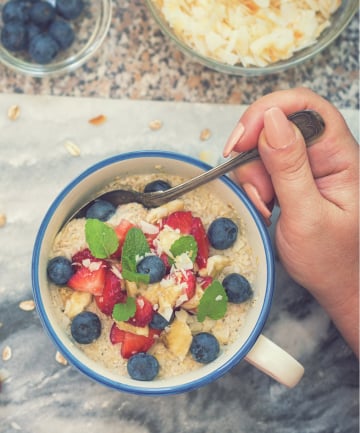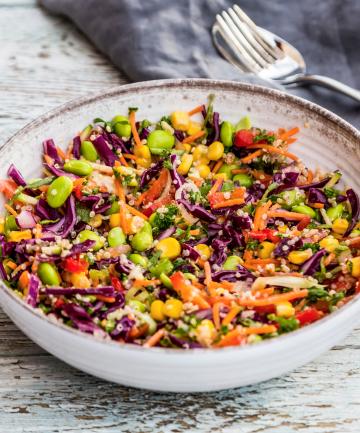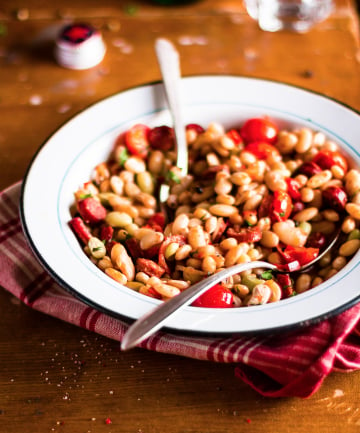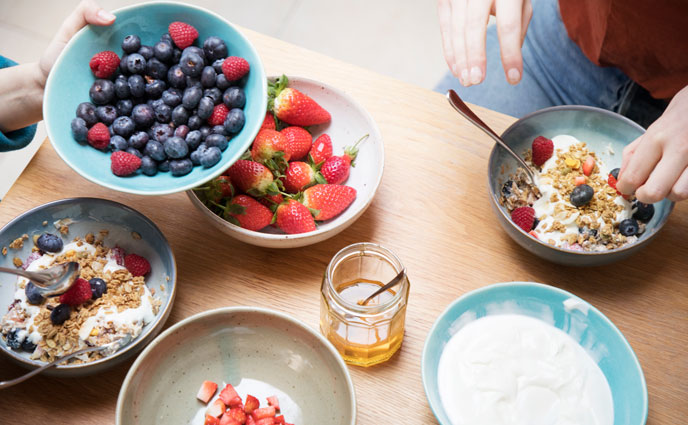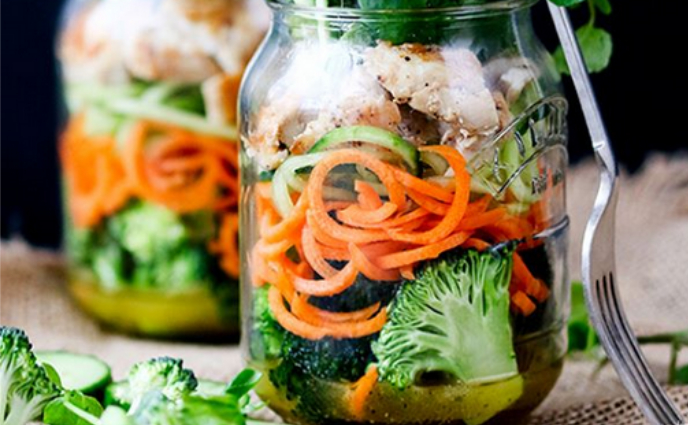The first meal of the day should have some protein, and the average cereal, or toast, does not. Eggs take two minutes longer than pouring cereal, and they pack 7 grams of protein per egg. Not an egg gal? Try oatmeal: One cup has 6 grams of protein, and if you add 3 tbsp of hemp seeds, you get 10 grams more. Top with some fruit and honey and you have a super-healthy breakfast that will keep you full well into the lunch hour.
Image via Igor Jovanovic/500px/Getty
Image via Igor Jovanovic/500px/Getty
While many of us were brought up on the nutritionally deficient white bread and white rice, it's time to make a switch. Wild rice has twice the protein of white rice, and quinoa has more than 8 grams of protein in a cup. Try mixing it up — couscous is always delicious and buckwheat pancakes have an earthy flavor that goes perfectly with real maple syrup.
Image via Westend61/Getty
Image via Westend61/Getty
Seeds and nuts are an easy replacement for between meal snacking or on-the-go eats. In 100 grams, peanuts have 25 grams of protein, while almonds and pistachios have around 20 grams. Add sunflower seeds or pumpkin seeds to dried berries for a yummy trail mix, or sprinkle hemp seeds on salads for a crunchy bite.
Image via Claudia Totir/Getty
Image via Claudia Totir/Getty
Just one serving of Greek yogurt adds about 18 grams of protein to your day. There are also milks that have been specially filtered to be more protein rich. (Oh, and have you heard of quark yet?)
Image via knape/Getty
Image via knape/Getty
Beans are so versatile and can be added to almost any recipe. Chickpeas come in at 14 grams of protein per cup or add a cup of lentils to any soup for an added 28 grams of protein. Kidney beans, black beans, even peas can be put in pasta or salads for a high fiber, high protein, and tasty addition.
Image via Anna Kurzaeva/Getty
Image via Anna Kurzaeva/Getty


